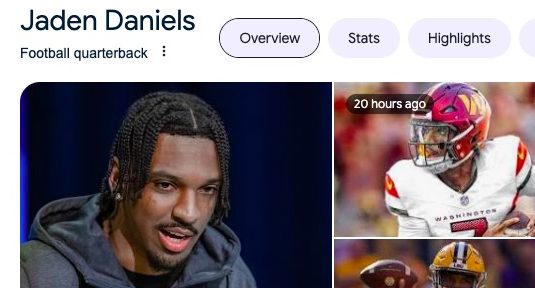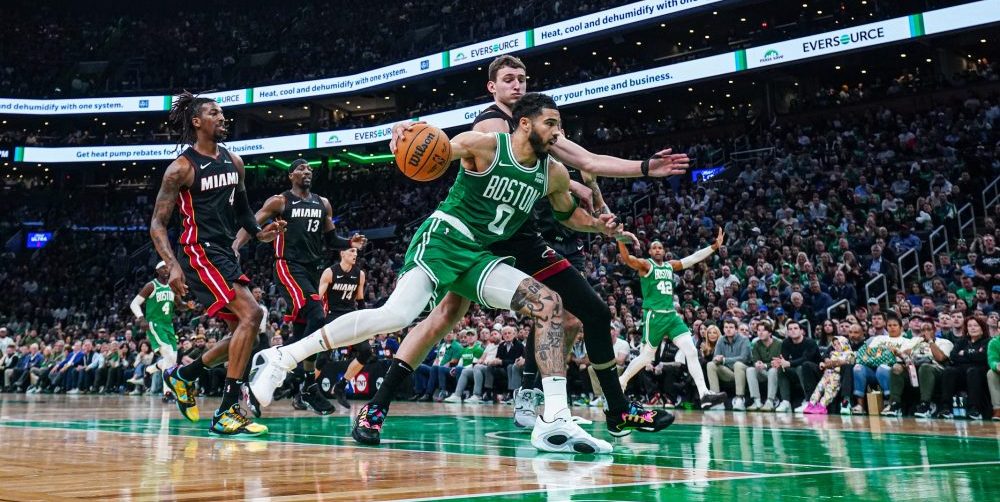For a guy who says that he doesn’t care what people think about him, Draymond Green sure spends a lot of time trying to craft an idea of how people should view him and pushing back on their ability to share their own opinions.
The Golden State Warriors forward has been at the forefront of the “new media” movement that many former NBA players have claimed in recent months. As they would describe it, it’s a way for those who actually play the game to be thought leaders about the state of the sport, instead of allowing Stephen A. Smith, Skip Bayless, and beat reporters who never played in the NBA to dictate the daily discussions.
On paper, that sounds worthwhile. In reality, it mostly consisted of a lot of complaining and straw-man arguments about what sports fans care about. Their thesis seemed to work under the assumption that Fox Sports and ESPN audiences think people like Smith and Bayless are experts, which only strengthened the notion that they completely misunderstand the sports media landscape (or are willfully ignorant about it while also appearing on First Take and programs like it).
While current and former players like JJ Redick, CJ McCollum, Richard Jefferson, Patrick Beverly, and Kevin Durant have helped spread the “new media” gospel, no one has run with it more than Green. He revels in lecturing media on reports he doesn’t like, pushes back on any questions about his extracurricular activities, and hates being referred to as a member of the media.
Meanwhile, he hosts a podcast in Colin Cowherd’s network despite the fact that Cowherd has said plenty of things that Green routinely bashes other media members for, considered a role on First Take, signed a deal with Turner for Inside the NBA appearances and other projects, buddies up with the “old media” folks that he bashes, and took part in a documentary special from Religion of Sports and Amazon Studios.
How much more media member can you get? None. None more media member.
The pièce de résistance came this week with the debut of an “all-access” The Countdown series on Green (in partnership with his 23 Green company and with Peyton Manning‘s Omaha Productions) with the premiere episode covering Green’s reactions to media coverage of his punch of Jordan Poole.
Draymond Green: “i dont care what people think about me”
Also Draymond Green: “here’s an entire expensively produced, well thought out docuseries aimed at shaping people’s opinions on me” https://t.co/chWU5G0L1w
— pasty possibilities (@connor_wilkins) October 19, 2022
What’s wild about this Doc is Draymond himself spoke about how much the incident has embarrassed Poole and Poole’s family. And is now making content around it. https://t.co/16y8xV62Cs
— 🎄Black Big Lebowski🎄 (@LaJethroJenkins) October 18, 2022
That’s a page right out of the oldest of old media “save it for the book” strategies.
All of which takes us to Thursday’s TechCrunch Disrupt 2022, an eye-rollingly named conference for “tastemakers” and “disrupters.” Green appeared to discuss the “new media” and his many, many media ventures. In true “disrupter” fashion, Green appears to have honestly convinced himself that he’s doing something new and unique and not, in fact, just reinventing the wheel.
"Anytime you do something different, people are going to have a problem with it" – @Money23Green at #Disrupt2022 pic.twitter.com/bhBWifNW8C
— TechCrunch (@TechCrunch) October 20, 2022
“Me doing a podcast is very disruptive to the sports media industry,” Green said on Thursday. “You’re listening to me speak about this game in a totally different context than you will hear anyone in the media speak about. Why? Because I actually just played that game. So my perspective is totally different. And in doing a podcast, the media is not able to create the narrative that they want to create. There was a lot of pushback. For those pundits that had a problem with me doing the podcast, I wonder what they’ll say this year because I actually won an NBA final doing it, so it couldn’t have been much of a distraction.”
We haven’t checked but we’re guessing Green’s ongoing sense that his podcast is causing “a lot of pushback” and represents “a problem” is based on being asked about it two or three times.
Green also addressed the leaked video of him punching Poole and its fallout.
“I watched that video 15 or 16 times throughout the day,” Green said. “I kept putting myself through it because when I watched it, I couldn’t quite understand it. The video is six seconds. Just me walking up. No sound or anything, nothing leading up to it or anything. And so I’m watching the video, and I’m like: ‘man, this is bad.’”
Per TechCrunch, Green added that he recorded a podcast episode about the incident but didn’t release it because the “didn’t want it to seem like he was only addressing the situation for personal gain.”
Guess this doesn’t count for personal gain then?
Finally, Green addressed social media and, like so many outspoken and powerful people in the tech world, seemed to have a desire for censorship and control over others’ ability to share their own opinions.
“We live in a day and age of social media and it’s great,” Green said. “But it’s not always censored. So you’re subjected to everyone’s opinion, and I don’t know if that’s always the best thing. You’re kind of in a position on Twitter or Instagram where everyone feels like they can say whatever it is that they want to say.”
Again, for a guy who says (a lot) that he doesn’t care what people think about him, in reality, he appears to be consumed by it. And it’s a slippery slope from “I should be allowed to say whatever I want” to “I don’t think others should be allowed to say whatever they want,” and it doesn’t appear that Green realizes that.







